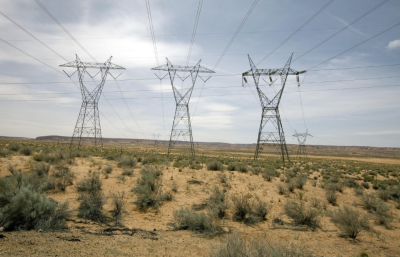Cooperative Transmission Planning Reduces System-Wide Costs and Enhances Grid Performance During Heat Waves
A primary challenge in the energy industry is enhancing the electricity grid's performance during extreme weather events, such as increasingly frequent heat waves due to climate change. Our open-source modeling reveals that cooperation in electricity transmission planning significantly reduces costs and outages, even under these challenging conditions. We analyzed how varying levels of collaboration affect grid reliability and costs. Through future scenario simulations, we discovered that cooperative planning lowers electricity prices and boosts renewable energy use. Although the benefits of cooperation diminish during widespread heat waves, it remains advantageous overall, underscoring the importance of collaborative efforts in grid management.
This research explores how working together to plan electricity transmission can improve power grid performance during heat waves. Heat waves can cause high electricity demand and overutilization of transmission lines, leading to power outages and high costs. This study is the first to model how cooperation in planning can reduce these issues, especially in future scenarios with more renewable energy. By simulating future conditions, we find that cooperative planning can lower electricity prices and outages by allowing regions to share resources more effectively. These modeling results provide key insights for energy sector resilience planning.
We explore the impact of cooperative transmission expansion planning on the performance of electricity grids during extreme weather events, specifically heat waves. Our research focuses on the Western Interconnection of the United States, simulating grid operations in 2019 and projecting conditions for 2059, including higher demands due to population and socioeconomic changes and a future electricity supply portfolio with a higher percentage of renewable resources than in 2019. We analyzed both a local and a widespread heat wave event. We find that cooperative planning, which involves collaboration across different transmission planning regions, significantly reduces wholesale electricity prices and power outages. In 2059, cooperative planning decreases yearly average wholesale electricity prices by 64.3% and annual transmission and generation costs by 34.6%, compared to individual planning. It also enhances the utilization of renewable energy, thereby reducing greenhouse gas emissions.
However, the benefits of cooperation diminish during widespread heat waves because all regions experience high electricity demand due to increased cooling needs and, therefore, have less flexibility to assist neighbors. Despite this, cooperative planning remains beneficial, particularly for regions like California with substantial solar generation capacity that follows diurnal cycles, thereby creating a need for importing electricity during early mornings and late evenings. Our study underscores the importance of strategic investments in transmission infrastructure to mitigate the challenges posed by future extreme weather events, highlighting the need for coordinated efforts to optimize grid reliability and cost-effectiveness.

